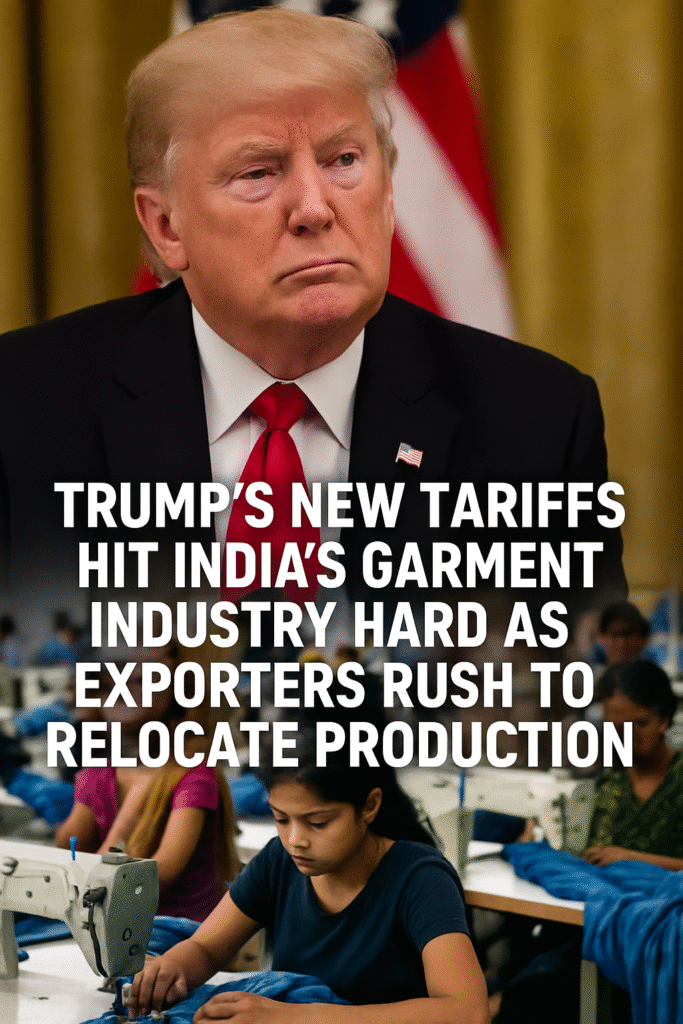The Indian garment industry is experiencing intense turbulence after President Donald Trump announced heavy new tariffs on Indian exports to the United States. This abrupt move triggered a scramble among exporters to salvage business, with urgent calls from anxious US buyers leaving manufacturers little time to breathe. Pearl Global, a leading supplier to international retailers such as Gap and Kohl’s, reports that its American clients have halted orders from India and are actively demanding relocation of production to countries unaffected by the new tariffs.

For major US chains like Walmart, Amazon, and Target, India is no longer the preferred source for apparel. These retail giants, fearing rising costs, have put a hold on further orders and pressured suppliers to shift their manufacturing hubs. Pearl Global is now fast-tracking production in Bangladesh, Indonesia, Vietnam, and Guatemala, while some other companies are eyeing alternative locations such as Nepal and Ethiopia — countries currently with preferential tariff rates.
The sting of the new policy is especially acute as expectations were high earlier this year. Trump’s initial tariff structure seemed to boost India’s competitive advantage in the $16 billion US apparel import market. That optimism has evaporated as the latest round of penalties brings Indian garment tariffs to a whopping 50%, compared to 20% for Bangladesh and Vietnam, and 30% for China. Much of this hike stems from Washington’s discontent with India’s purchase of Russian oil, triggering a punitive 25% penalty to be added on August 28. Exporters like Pearl Global find themselves trapped between non-negotiable costs and the risk of eroding market share as clients refuse to share in the burden.
Smaller exporters who rely exclusively on Indian factories, like RichaCo Exports — which shipped $111 million in garments to American brands this year — face even graver threats. They are trying to set up new operations in bordering countries to stay afloat. Titan, India’s iconic jewellery and watch brand, is evaluating moving part of its manufacturing to the Middle East, while Raymond eyes expansion in Ethiopia where the tariffs are a mere 10%.
For the thousands of workers and manufacturers in Tiruppur, the country’s knitwear capital responsible for one-third of all Indian apparel exports, the atmosphere has turned from optimism to panic practically overnight. US buyers are either pulling back or demanding emergency shipments before the tariffs increase. Some exporters are halting yarn purchases, fearful of being saddled with stock for cancelled orders and mounting losses.
This shock upends India’s ambitions to advance its role in global supply chains and threatens Prime Minister Narendra Modi’s “Make in India” campaign. With workforce shortages, production constraints, and now a rush of order relocations abroad, the industry faces an unprecedented test. The coming weeks will determine whether Indian apparel exporters can pivot rapidly, or whether the sector will watch valuable manufacturing contracts slip away to rivals in Bangladesh, Vietnam, and beyond
